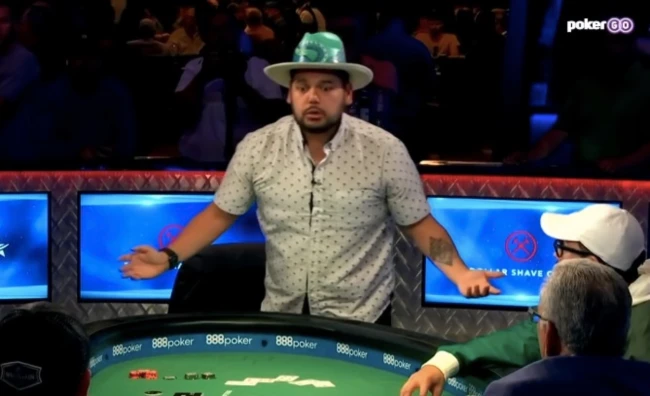For those who don’t know what a “Bad Beat” is, it’s a hand in which a person bets and a card at the same time, meaning that person has absolutely nothing and you can’t ever win with that hand. Sometimes it can happen that you have a really good hand and win at the same time.
Whenever you have one of these hands you need to ensure that you will beat the other person with the better hand. You do this by having higher cards. Remember you don’t want to go past 5/1 odds so neither is it likely that you have a lock, (you have the best hand), so the pot odds say you should call. Then you need to act after the flop to make your hand.
So you are in a game and you have a hand, for example, A and J off suit. Flop is 7 and 9 with two of the queens. depo 20 bonus 30 You are initially not very confident with this hand, as you have nothing particularly high. But then a third queen comes out! Though your initial hand odds are not that great they might improve and you might hit a straight, so you call the pot.

The turn card is 3 and your heart beats faster than it should, you feel great and expect to now win the hand. The river card is a 4 and you are feeling even better, you have the ace and a flush draw maybe you should do the river raise and go all in. However your opponent doesn’t call, he pushes all in. You have the nut straight now and he’s out. You will win the hand because you have the nut straight.
Being dealt a straight when you have the nut straight makes for a wonderful feeling. It might not be the greatest hand to go to your nearest casino or to your house, but some people call it a lucky day to be dealt a hand like that. After all you are only tripling your money and even if you loose, nothing is as powerful as being dealt a high card which practically all starting hands are sporting.
Just-So-How-Many-outs-Do-We-Know?
Let’s take an example in which you have a nut hand, (still counting cards in case of an ace). The example would be: Ace, King, Queen, Jack, 10, 9, 8, 7, 6, 5, 4, 3, 2. We will count these as we have already except 9 and 8, then we will add 9 and 8 together to 24 outs. The number of outs you have is then 58.
Now, we will count the number of cards that will help you win the hand, and the number of cards those cards strengthen the hand of your opponent. You will multiply each of the numbers found on the cards by 0.25 to surgeries, to get an approximate percentage of how many cards will help you versus how many cards will not help you.
Now you can get a rough idea as to what cards will help, and what cards will not help, by making little computations:
000rity = Cards that won’t help us = 47 cards on the board offset by 47 cards not helped by our two hole cards
000igel = Cards that will help us = 49 cards on the board offset by 49 cards not helped by our two hole cards
000ourage = Cards that will hinder us = 48 cards on the board offset by 48 cards not helped by our two hole cards
The two procedures above are independent events, occurring at independent points in the game of poker.
In summary, independent events can occur frequently because the players are allowed to bet & raise since the start of the hand. The result is that the number of hands with positive expectation going into the game can be very high. I have not done the math to get the precise results, but you will know it when you walk away from the table.
